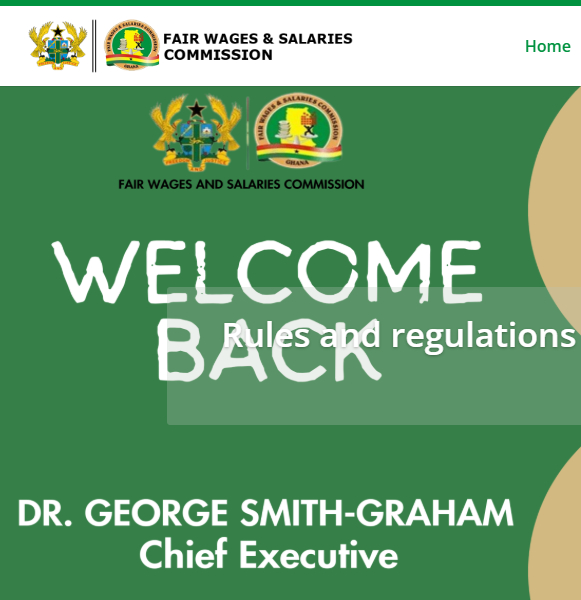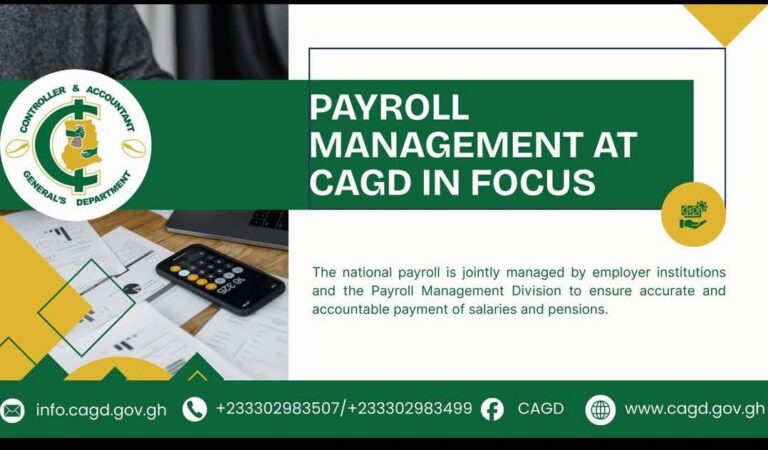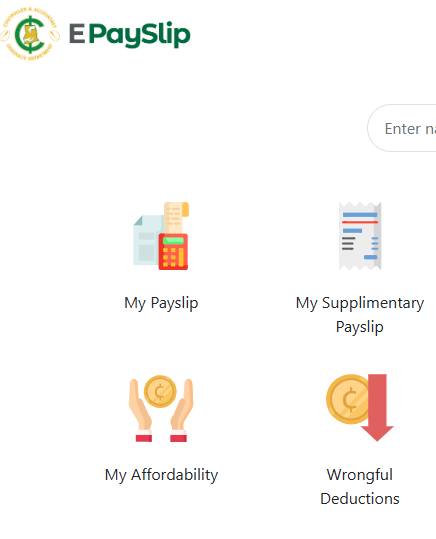
Fair Wages and Salaries Commission (FWSC) Proposing 3 years for Salary negotiations for Conditions of Service
As the window for the crucial 2026 salary negotiations opens, a major proposal from the Fair Wages and Salaries Commission (FWSC) is set to change the landscape of public sector wage discussions in Ghana.
Behind closed doors, negotiations are underway, and all eyes are on the outcome that will affect thousands of public sector workers. Here’s a comprehensive update on the latest developments.
A Shift to a 3-Year Negotiation Cycle
The Chief Executive of the Fair Wages and Salaries Commission (FWSC), Dr. George Smith-Graham, has put forward a significant proposal to change the very rhythm of public sector wage negotiations.
Speaking at the 50th Technical University Teachers Association of Ghana (TUTAG) delegates Congress in Accra, Dr. Smith-Graham suggested extending the negotiation cycle from two years to three years.
Why the change? The Chief Executive argues that a longer cycle would provide the government with the much-needed fiscal space and stability to plan and budget effectively. Managing conditions of service across the vast public sector is a complex challenge, and a three-year framework could offer more predictability for both the government and employees.
This proposal aims to find a critical balance: meeting the legitimate needs of public sector workers while ensuring long-term fiscal sustainability for the nation.
Follow us on WhatsApp for more updates: CLICK HERE
Seekers Consult
Contact Us for Your Study Abroad Journey
We search for schools and check available scholarships for you
Contact: 0550414552 / 0362297079

Loan for government workers
Transcript Application
English Proficiency
Recommendation letter
Project work/thesis for undergraduate, master’s, and PhD students.
Apply for Affidavit, Gazette instantly
Passport and Visa Applications
All other Internet Services
The Immediate Pressure: 2026 Salary Negotiations
While the three-year cycle is a proposal for the future, the present is dominated by the imminent 2026 salary negotiations..
What are unions demanding?
Sources within organized labor indicate that unions are preparing to push for a raise exceeding 50%, a figure they argue is justified by the current economic climate and the rising cost of living.
Calls for Restraint and Realism
In response to these high expectations, FWSC CEO Dr. Smith-Graham has publicly appealed for restraint. While noting that no formal 50% proposal has been tabled yet, he emphasized the importance of negotiation and consensus.
“We will negotiate and come to a consensus,” Dr. Graham stated, adding, “By the close of this month, we should be able to conclude.”
This sentiment was echoed by the Minister of Labour, Jobs and Employment, Dr. Rashid Pelpuo, who encouraged unions to consider broader economic factors like the value of the cedi, inflation rates, and the total cost of living as key guides for the negotiations.
A Long-Term Solution: The Emoluments Commission
These ongoing debates have reignited discussions about a permanent solution: the establishment of an Emoluments Commission.
Dr. Graham has pointed to this constitutional body as the potential answer to persistent inequities in the public sector labor market. Such a commission would be designed to reduce external influences on wage talks and address the often-contentious disparities related to Article 71 office holders.
The recent inauguration of a new board for the FWSC is also expected to foster a more transparent and collaborative process between the government and labor unions.
Commitment to Technical Education
The TUTAG Congress itself, themed “Sustainable Skills for a Sustainable Future,” highlighted the crucial role of technical education. Dr. Smith-Graham and the Minister of Education, Haruna Iddrisu (whose speech was read on his behalf), stressed the need to align education with market needs.
Dr. Smith-Graham proposed innovative industry-academic partnerships to co-finance allowances, research grants, and professional development, addressing challenges like skills mismatch and graduate unemployment.
The Road Ahead
Public sector workers are watching closely as this month’s deadline approaches. The outcome of the 2026 negotiations will set the tone for the future, including the potential adoption of a three-year cycle.
The central question remains: Can the government and organized labor find a middle ground that acknowledges economic realities while fairly compensating the workforce that serves the nation?
What do you think about the proposal for a 3-year negotiation cycle? Is it a move towards stability or a limitation on workers’ bargaining power? Share your thoughts in the comments below!
New Fair Wages Board Inaugurated to Ensure Equity in Public Sector Pay
In a significant move towards equitable labor practices, a new governing board for the Fair Wages and Salaries Commission (FWSC) was officially inaugurated on August 6, 2025. The seven-member board is tasked with promoting fairness, transparency, and good governance in public sector compensation.
Composition of the New Board
The newly inaugurated board brings together a wealth of experience from law, public service, and employer advocacy. The members are:
-
Chairman: Samuel Adu-Yeboah, a Legal Practitioner with Adom Mbrodo Law Chamber.
-
Dr. George Smith-Graham, Chief Executive of the FWSC.
-
Annie Moghtar Mohayideen, of S&AC Law.
-
Dr. Prince E. Darah, of the Public Services Commission (PSC).
-
Joyce Aseidu-Ofei, representing the Ghana Employers Association.
-
Madam Hilda Ashie, a retired staff of the FWSC.
-
Shadrack Mensah, of the Ministry of Labour, Jobs and Employment.
Minister’s Charge: Uphold Fairness and Curb Unrest
During the inauguration ceremony, the Minister for Labour, Jobs and Employment, Dr. Rashid Pelpuo, charged the board to be steadfast in upholding fairness and equity in public sector pay administration.
He highlighted the critical role of the FWSC in ensuring good governance and managing the public service wage bill within a sustainable economic framework. Dr. Pelpuo pointed to the need for an Independent Emoluments Commission to resolve long-standing disparities in wages and salaries.
After congratulating the appointees and thanking them for their willingness to serve, the Minister gave them a clear mandate: to develop effective mechanisms to reduce labor unrest stemming from pay inequities. He expressed full confidence in their expertise and assured them of his ministry’s complete cooperation and support.
Board Pledges Commitment to National Service
In response, the newly appointed Chairman of the board, Samuel Adu-Yeboah, expressed the board’s gratitude to President John Dramani Mahama for the appointment and the opportunity to serve the nation.
The board’s inauguration marks a proactive step by the government to address a core concern of public sector workers and stabilize the national labor front.
Follow us on WhatsApp for more instant updates: CLICK HERE
#GhanaNews #SalaryNegotiation #PublicSector #FWSC #LabourUnions #TUTAG #Economy #CostOfLiving #GhanaGovernment





I’m highly interested